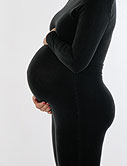
MONDAY, Dec. 6 (HealthDay News) — Women who experience restless legs syndrome (RLS) during pregnancy are at increased risk for having it again during future pregnancies or developing a chronic form of the condition later in life, researchers have found.
RLS causes unpleasant sensations in the legs. Symptoms are generally worse at night and tend to progress with age. Movement generally relieves symptoms.
Italian researchers recruited 74 women who had RLS during pregnancy and 133 who did not. Six-and-a-half years later, the women were interviewed about RLS symptoms, additional pregnancies, occurrences of other diseases and medication use.
Of the women who had RLS during pregnancy, 18 (24 percent) also had the disorder at the end of the study, compared to 10 (8 percent) of the women who did not have RLS during pregnancy, the investigators found.
About 60 percent of the women who had RLS during a first pregnancy had the disorder again in a future pregnancy, compared to 3 percent of the women who did not have RLS during a first pregnancy, according to the report published in the Dec. 7 issue of the journal Neurology.
“This is the first long-term study to look at a possible connection between restless legs syndrome in pregnancy and repeat occurrences in later years or future pregnancies,” study author Dr. Mauro Manconi, of Vita-Salute University in Milan, said in an American Academy of Neurology news release.
“Most of the time, when a woman experiences RLS in pregnancy, it disappears after the baby is born. However, our results show that having the condition during pregnancy is a significant risk factor for a future chronic form or the short-term form in other pregnancies down the road,” Manconi added.
More information
We Move has more about restless legs syndrome.

